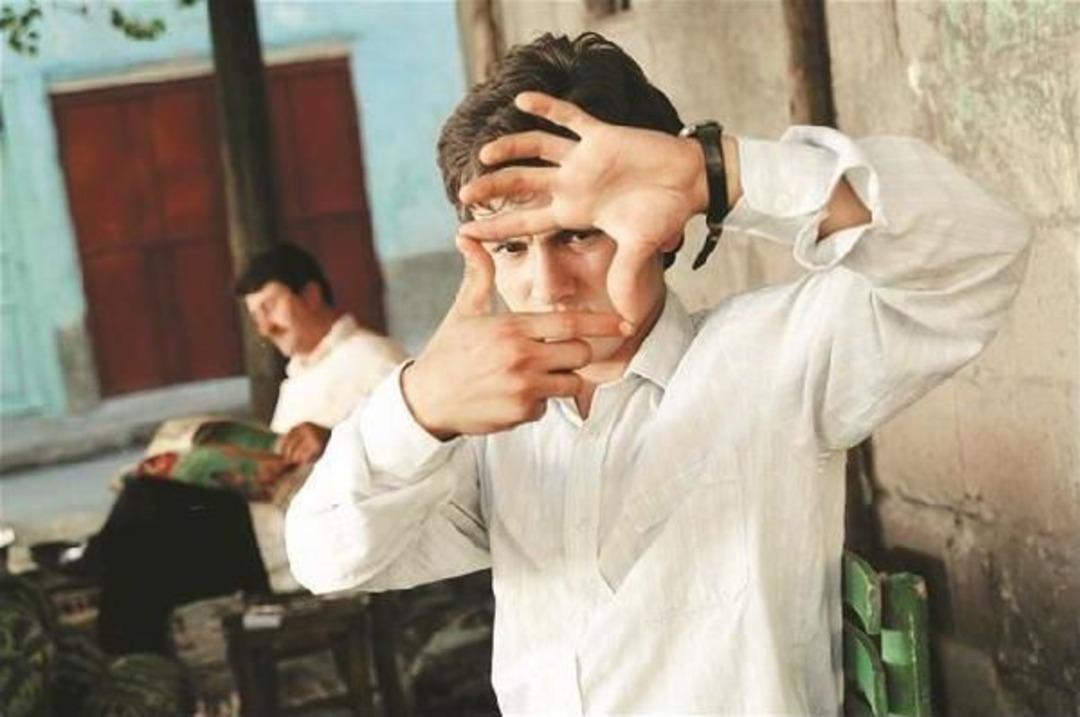

- Güliz Sağlam’s documentary “Tepecik Hayal Okulu” (A Dream School in the Steppes) is about films, making films, and a potent passion for making films. The film is about a man whose life was defined by his passion for cinema, a life that brought forth two feature films – one that continues to resonate with many – along with shorts that were uniquely his own.
“Tepecik Hayal Okulu” is about the late Ahmet Uluçay, whose life was cut short by a brain tumor. The film was begun as a project to tell and spread the story of this true cinema enthusiast to other cinema enthusiasts when Uluçay was battling with his tumor. This passion project blends dreams with reality, and the heartbreaking scenes of the hospital corridors with Uluçay’s childhood village, a sad wink to those familiar with his debut feature.
“We wanted to tell his story in his own words so that Ahmet Uluçay’s miracle story would be a hope for those who run after their dreams and passions” said Sağlam for the film in the director’s statement. “We wanted to point out that sincerity and genuineness are hard to achieve, and yet indispensable to leave an indelible mark on cinema for the new generations and those who strive to be productive in filmmaking.”
Uluçay himself had said, “Making a movie, for me, is like writing a letter, putting it in a bottle and throwing it into the sea. The letter will find the ones who need it. Sooner or later.” The letter that reached the widest audience was his debut feature, and magnum opus, 2004’s “Karpuz Kabuğundan Gemiler Yapmak” (Boats out of Watermelon Rinds). The coming-of-age story was also one of the films that had taken Turkish cinema out of its stupor in the early 2000s.
“Tepecik Hayal Okulu” in fact, plays like a wonderful companion piece to “Karpuz Kabuğundan Gemiler Yapmak” as Uluçay chose his childhood village in the Aegean, Tepecik, as the setting for the movie. The film is a heartwarming story about the passion of cinema through the eyes of two young boys in a small village in the 1960s.
One working for a watermelon vendor, and the other for a barber, the two boys take a foray into filmmaking by collecting disposed films from the local movie theater, and try showing them on a wall through a projector they build. With no electricity in the village, the two use a generator to the amusement of the villagers. The film is loosely based on Uluçay’s own life, hence making the film the companion to “Tepecik Hayal Okulu.”
Every kind of filmmaker on film
The 2000s was the decade in Turkish cinema when feature films on films and filmmaking gained in popularity. Another memorable film is then-novice directors Emre Akay and Hasan Yalaz’s “Bir Tuğra Kaftancıoğlu Filmi” (A Tuğra Kaftancıoğlu Film), which has become a cult hit since its release in 2007.
The film is film within a film, shot with documentary-style realism, where a psychopath of a director (lending his name to the title) knows no boundaries. Blurring fiction and reality, the film follows aspiring and actual filmmakers secretly watching others, who in turn, are secretly watching others. “Bir Tuğra Kaftancıoğlu Filmi” is at times dark, at times funny, and always a compelling watch.
Another feature on filmmaking that has become a classic and a fan favorite is award-winning auteur Zeki Demirkubuz’s “Bekleme Odası” (The Waiting Room) from 2003. Credited as director, writer, producer, cinematographer and editor, Demirkubuz also takes the leading role as a depressed director hoping to adapt Dostoyevsky’s “Crime and Punishment.”
The final film in Demirkubuz’s “The Tales of Darkness” trilogy, “Bekleme Odası” creates alternate realities, blending into one another as director Ahmet isolates himself from everyday life, hopelessly trying to inhabit the novel he is trying to make his own on screen. As the name of the trilogy and the novel in question implies, the film is a darker look at a filmmaker’s quest to create.
There are two other films from Turkish cinema on filmmaking and filmmakers that are worth checking. One is Yavuz Turgul’s “Aşk Filmlerinin Unutulmaz Yönetmeni” (The Unforgettable Director of Romantic Movies) from 1990, which tells the story of the director in the title who is trying to direct his first art house movie to appeal to so-called intellectuals. And the other one is Yavuz Özkan’s “Film Bitti” (The Film is Over) where two actors on the edge of a divorce play two lovers in their final movie.
(Photo)
Anadolu Ajansı ve İHA tarafından yayınlanan yurt haberleri Mynet.com editörlerinin hiçbir müdahalesi olmadan, sözkonusu ajansların yayınladığı şekliyle mynet sayfalarında yer almaktadır. Yazım hatası, hatalı bilgi ve örtülü reklam yer alan haberlerin hukuki muhatabı, haberi servis eden ajanslardır. Haberle ilgili şikayetleriniz için bize ulaşabilirsiniz